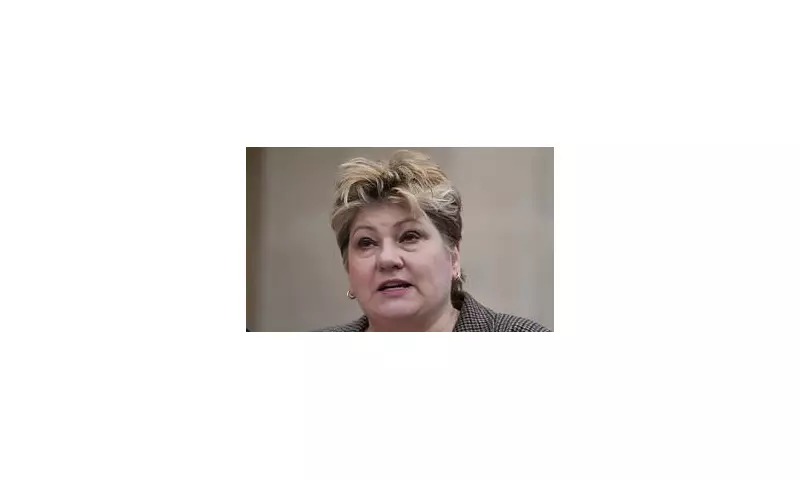
The House of Commons witnessed heated exchanges as Reform Party faced fierce criticism over its perceived pro-Poscow positioning, while former US President Donald Trump remarkably avoided similar scrutiny despite his controversial peace proposal for Ukraine.
Parliamentary Fury Over Reform's Russia Links
Prime Minister Sir Keir Starmer and Business Secretary Kemi Badenoch led the charge against Nigel Farage's party during a midday foreign affairs session. The attacks came in the wake of Reform's former leader in Wales receiving a ten-and-a-half-year prison sentence for accepting bribes from Moscow.
Backbench Labour MPs did not hold back, with accusations of "treason" and "treachery" echoing through the chamber. Torcuil Crichton, the MP for Western Isles, delivered a particularly forceful condemnation, denouncing what he called "the Lord Haw-Haws paid by Putin."
Noticeably absent was Reform's leader Nigel Farage, who represents Clacton and was not present in the chamber. The party's parliamentary representation dwindled further when Lee Anderson, the MP for Ashfield, departed shortly after the session began, leaving only Richard Tice to face the music.
Tice Under Fire as Labour Demands Kremlin Probe
Richard Tice, the MP for Boston and Skegness, found himself isolated and targeted by Labour MPs who demanded that Reform investigate its membership for additional Kremlin sympathisers. Despite Tice's defence that he had personally donated a five-figure sum to Ukrainian aid, he appeared visibly uncomfortable throughout the proceedings.
The intensity of the criticism raised questions about why similar outrage wasn't directed at Donald Trump, whose 28-point peace plan for Ukraine appeared remarkably favourable to Russian interests. The former US president faced minimal criticism from MPs, including from typically outspoken figures like Dame Emily Thornberry.
This selective outrage prompted observers to question whether the Commons had reached a level of political caution reminiscent of East Germany's Volkskammer, where criticism of Soviet leaders was notably absent.
Starmer's Diplomatic Balancing Act
The Prime Minister's appearance at 12.30pm to discuss foreign affairs coincided with breaking news about Ukraine potentially accepting a revised US peace proposal. Sir Keir found himself managing a rapidly evolving situation, receiving handwritten updates from civil servants while simultaneously fielding questions from MPs.
The situation became so dynamic that Sir Roger Gale, the Conservative MP for Herne Bay, requested the session be suspended to allow the Prime Minister to properly digest the latest developments, though Speaker Hoyle declined the suggestion.
Sir Keir expressed scepticism about whether the situation had materially changed since his last conversation with Ukrainian President Zelensky just four hours earlier. He handled the rolling developments with notable composure, while also delivering a poignant contrast between the birthday party he had hosted for his 15-year-old daughter and the suffering of a similarly-aged Ukrainian girl injured in a Russian attack that killed her mother.
The Prime Minister's strongest criticism of Trump came when he described elements of the 28-point peace plan as "so obviously unacceptable that it shouldn't have been put forward as a serious proposition." However, this fell well short of the condemnation many expected, particularly given the opportunity for backbenchers to voice stronger objections.
Parliamentary Courage in Short Supply
Only a handful of MPs demonstrated willingness to directly challenge Trump. Sir Roger Gale remarked that not even 42 years in the Commons had equipped him with sufficient sycophancy to deal with the former president. Minor criticisms came from Liberal Democrat deputy leader Daisy Cooper, Tory MP Mark Pritchard, and Green MP Ellie Chowns, but these were notably muted.
The collective reluctance to confront Trump painted a concerning picture of parliamentary courage, with MPs treating him like "the grotesque great-uncle with his flies undone whom no one dare upbraid" or "the playground thug no one will challenge."
The day's events left observers questioning why Reform Party bore the full brunt of parliamentary anger over pro-Russia positions while Donald Trump, whose peace plan might have been "dictated down the telephone from whichever bunker V. Putin has been using," received such gentle treatment from Britain's elected representatives.






